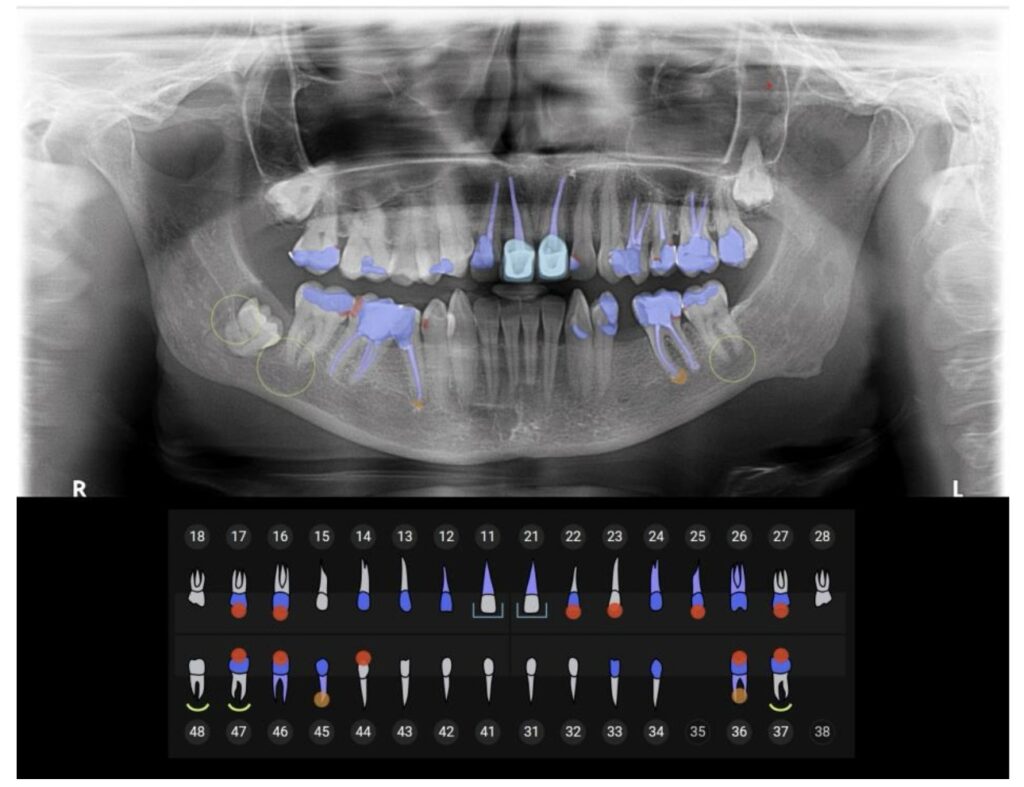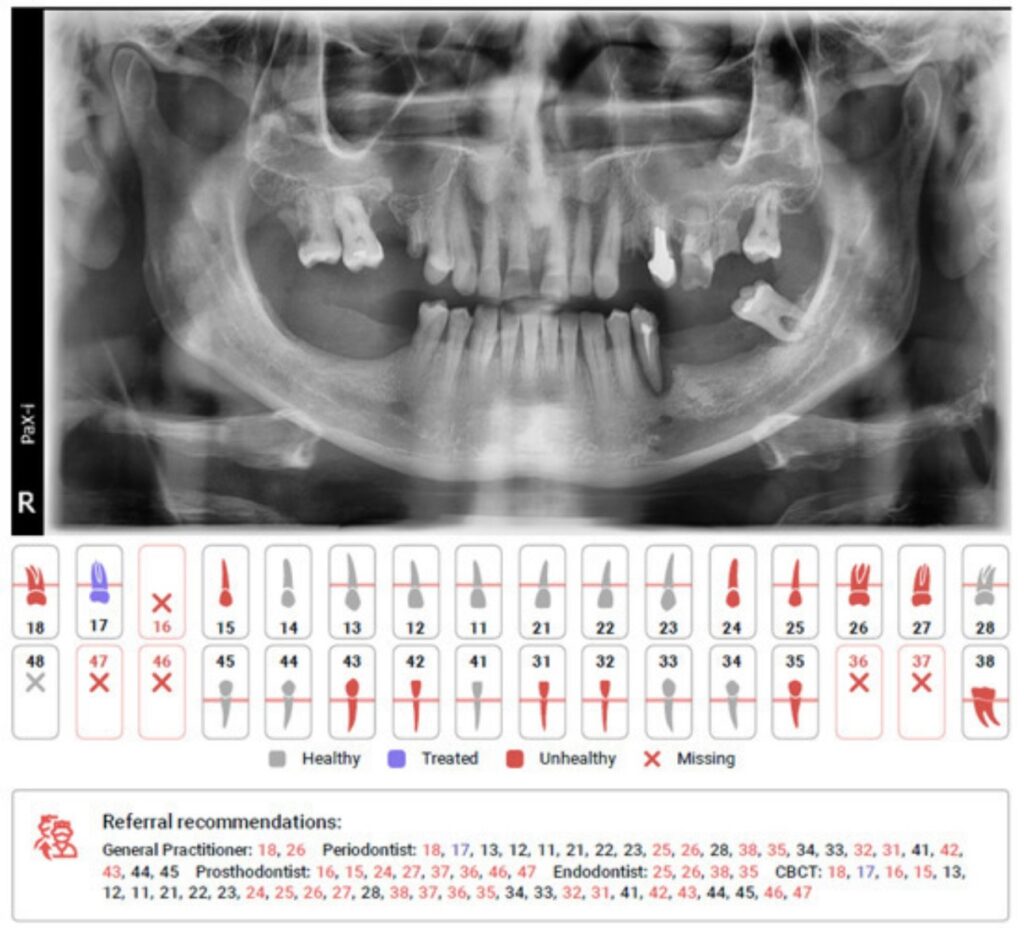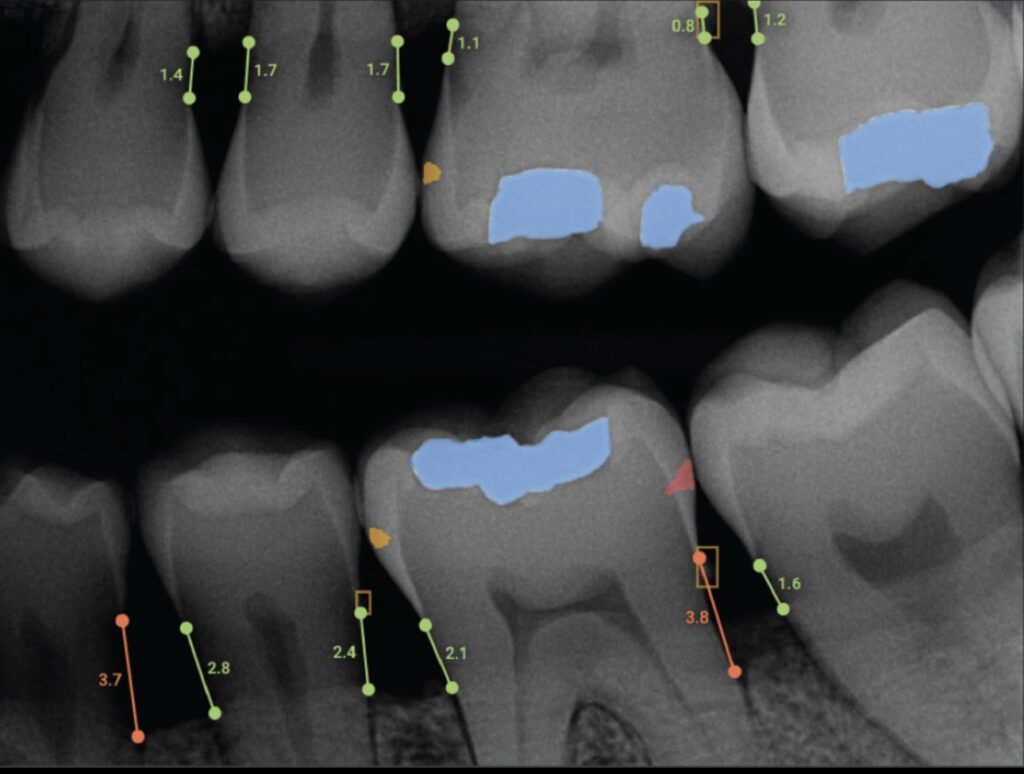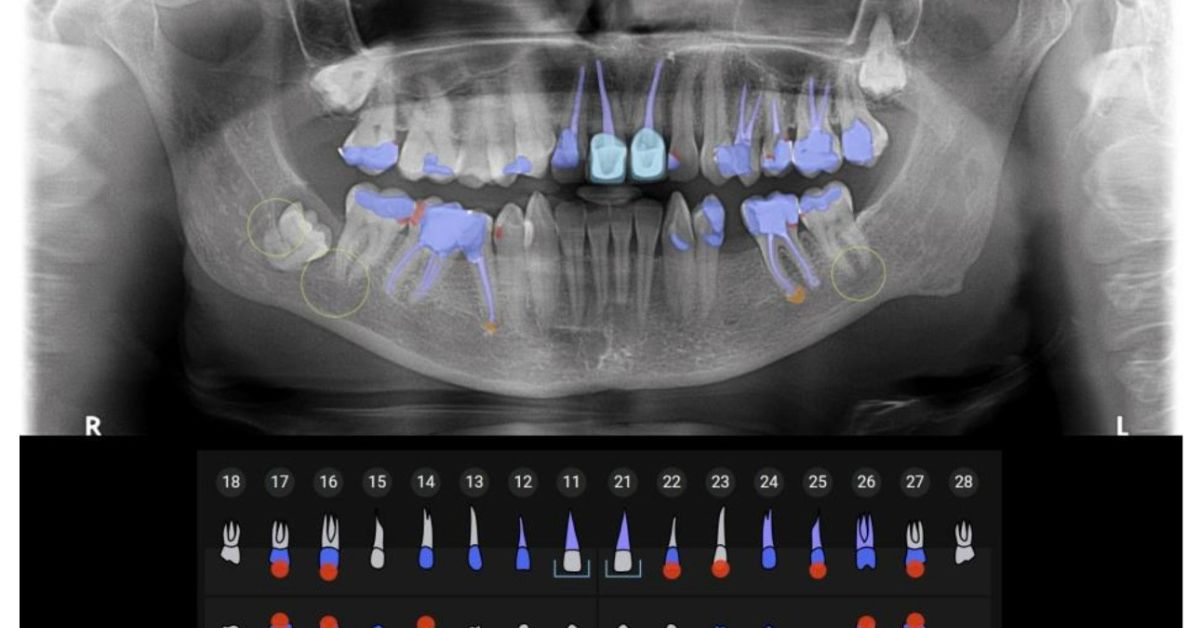Artificial Intelligence (AI) is no longer just a buzzword—it’s reshaping our profession. As a licensed dentist from Ukraine currently working as a dental assistant in Germany while completing the Anerkennungsprüfung, I’ve seen firsthand how AI can enhance diagnostics, treatment planning, and patient care. Here’s a deeper look into this technology and how it’s influencing dental practice from a beginner’s viewpoint.
What Is AI in Dentistry?
In simple terms, AI refers to computer algorithms that can ‘learn’ from data and make predictions or decisions based on patterns. In dentistry, this usually means analyzing thousands of images or patient records to help us make more accurate, speedy clinical decisions. It’s important to remember: AI assists, not replaces, our professional judgment.
Real-Life Applications in Clinical Practice
Radiograph Analysis & Diagnoses
AI-powered platforms like Pearl and Overjet analyze 2D and 3D dental images, identifying caries, periapical lesions, and alveolar bone loss with high accuracy. A recent study showed AI’s accuracy at around 90–95% for detecting interproximal caries.

Advanced Treatment Planning
AI revolutionizes implant and orthodontic planning. CBCT scans processed by AI can suggest optimal implant positions. Invisalign, for example, uses AI-driven modules to simulate treatment steps.
Streamlined Administration
AI enables voice-to-text charting, appointment reminders, and insurance claim automation—saving time and reducing clerical errors.


Benefits for New Dentists
– Boosted Confidence
– Efficiency Gains
– Better Patient Communication
– Evidence-Based Practice
Ethics, Limitations & Challenges
– Data Privacy & Security – Compliance with GDPR
– Clinical Liability – Decisions remain clinician’s responsibility
– Over-Dependence – Need for strong foundational knowledge
– Cost & Accessibility – Barrier for small practices
Future Directions in AI Dentistry
- Personalized Oral Health – Predictive modeling for caries based on lifestyle, habits, and genetics.
- AI-Assisted Surgery – Robotic drill guidance during implant placement.
- Tele-dentistry Integration – Remote triage with AI-supported diagnostics.
My Personal Experience
In my German clinic, I used an AI tool to highlight a small lesion on a bitewing X-ray. I had overlooked it initially, but AI flagged it—and I confirmed it clinically. That moment proved AI can be a reliable assistant in day-to-day work.
References
– https://www.mdpi.com/2075-4418/12/1/224
– https://www.sciencedirect.com/science/article/pii/S1532338224001271
– https://www.sciencedirect.com/science/article/abs/pii/S0022391324002270
– https://www.mdpi.com/2306-5354/11/9/936
– https://journals.lww.com/jpbs/fulltext/2024/16001/evaluating_the_role_of_ai_in_predicting_the.263.aspx
– https://gdpr.eu
